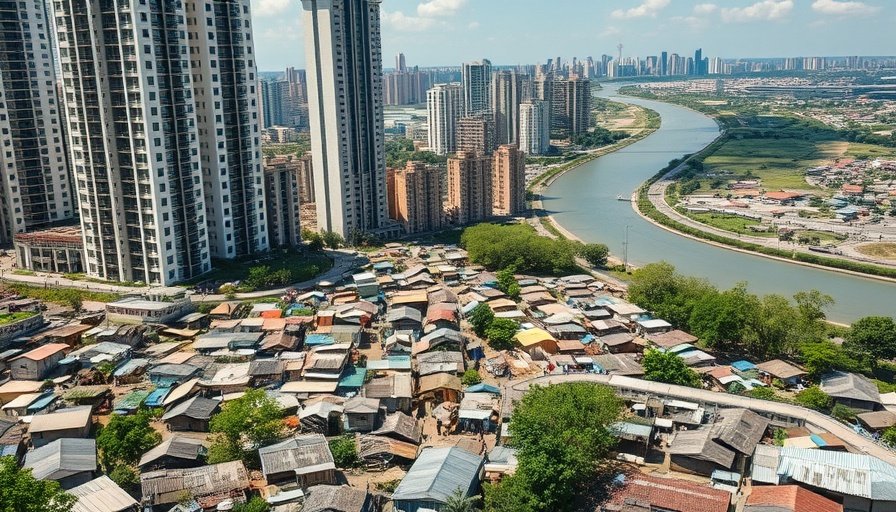
A Game-Changer: Ending Global Poverty While Protecting the Planet
Recent research has revealed encouraging news for those concerned about climate change and social inequality: it is indeed feasible to eradicate global poverty without compromising climate goals. This new study, spearheaded by Jarmo Kikstra from the International Institute for Applied Systems Analysis (IIASA), shows that with decisive action, the world can tackle both pressing challenges simultaneously.
Connecting the Dots: Energy, Poverty, and Climate Goals
The nexus between energy access and poverty alleviation is critical. As Kikstra notes, the study underscores how energy scenarios aligned with the Paris Agreement can meet the needs of all individuals across the globe. These scenarios highlight a significant decrease—over 90%—in the number of people without sufficient energy for basic household needs. This points to a brighter future, especially for low-income countries where energy access translates directly into improved living standards.
Revisiting Misconceptions: Sustainable Development vs. Emissions
A long-standing myth in discussions surrounding poverty eradication is the belief that achieving economic growth and environmental sustainability are conflicting goals. Kikstra's research challenges this narrative by presenting evidence that the energy required for basic human dignity is substantially lower than our current consumption levels. With the right policies and global coordination, it is possible to decouple economic progression from environmental degradation.
Prioritizing Efficiency: The Key to Success
Shonali Pachauri, another co-author of the study, emphasizes the importance of efficiency in service delivery to achieve both climate and poverty alleviation goals. “We need to not only expand access to essential services, but also refine how these services are offered,” she states. This approach requires investing in smarter infrastructure and equitable access to resources that prioritize both sustainability and human welfare.
Why This Matters: The Wider Implications
The findings resonate deeply within the current global context. As the climate crisis escalates, ensuring a decent standard of living for everyone is increasingly viewed as an essential human right. Engaging in this dual mission not only fosters compassion but essentially lays down a blueprint for a future where economic and environmental goals align seamlessly.
A Roadmap to Action: How Can We Achieve This?
The road to achieving these ambitious goals is fraught with challenges, but actionable insights can guide us toward a sustainable future. Policymakers and leaders must: 1) Ensure that the adoption of renewable energy sources becomes a priority, especially in developing nations; 2) Invest in educational programs that highlight the importance of sustainable practices for both individuals and communities; 3) Foster international collaboration to support infrastructure development that is not only environmentally friendly but also socially equitable.
Final Thoughts: Moving Towards a Sustainable Future
If we collectively embrace these insights and strategies, the path toward eradicating poverty and combating climate change can not only be envisioned but achieved. It’s a challenge that demands our commitment, creativity, and courage. The stakes have never been higher, but the potential rewards—an equitable, sustainable world—are more than worth it.
Join us on this journey towards a sustainable future. Advocate for policies that emphasize renewable energy and social equity, because together, we can achieve the extraordinary.
 Add Row
Add Row  Add
Add 




Write A Comment